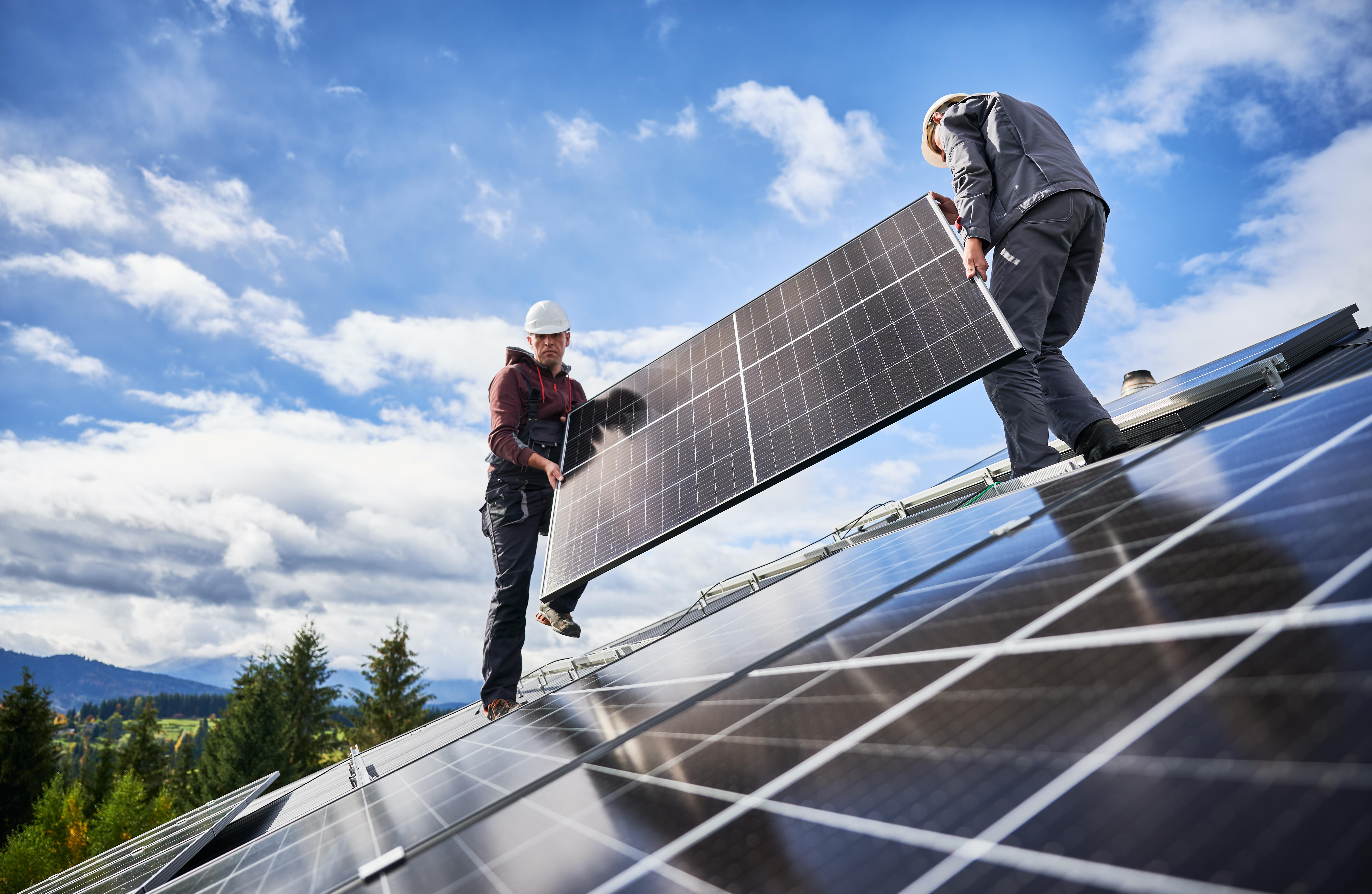Savvy homeowners know that installing solar panels is a great way to save money on your electricity. But solar brings a number of other benefits, as this article points out. Whether you're looking to spend less on energy, lower your home's carbon footprint, or increase the value of your home, check out Panasonic's library of resources when you're ready to go solar.
Owning a home is a considerable investment. You must be conscious of all related expenses, such as a mortgage, insurance, upkeep and maintenance, and utility bills. While there's not much you can do to reduce some of those costs, you can take steps to decrease your electric bill. Residential solar energy does just that.
What are the reasons to install solar panels?
Whether you're a homeowner or a small business owner, it's both essential and easy to reduce your carbon footprint through renewable energy sources. Being green and sustainable isn't just for the big guys, and every little change helps the planet. On the residential side, BUILD magazine notes that residential solar energy systems have a number of benefits. They:
- Decrease your electric bill: Solar panels can provide some of your home's electricity, so you don't have to rely solely on the local power company. Your consumption of electricity and the capacity of your solar system determines how much you can save. You may even be able to sell some of the energy your solar panels collect to electric companies in your area, which can help offset the cost of installing your system.
- Increase your home's value: Solar systems can be considered upgrades and add significant value to your home.
- Feature low maintenance: Solar panels do not need much care. While you should clean them regularly, it can be years before other maintenance is necessary.
- Have less environmental impact: Traditional power sources such as coal and gas are harmful to the environment. Solar energy is a renewable, sustainable resource that is much better for the atmosphere and our planet.
- Are eligible for financial incentives: In the United States, there are tax credits for installing residential solar energy systems. The Federal Housing Authority's Energy Efficient Mortgage program can incorporate the cost of the system into your mortgage, so you don't have to finance it separately.
- Offer increased home appraisal: Although it's not an environmental reason, adding solar panels can increase the value of your home. Check out the recent sale prices of homes in your area with solar to see if they exceeded the median sale price.
In addition, residential solar energy alters the environmental impact of solar energy overall. Large-scale solar farms take up too much land. Siting solar panels on marginal land helps take the pressure off. Using space on the nation's roofs reduces the need for utilities to use land for solar installations.
Will solar panels work for your home?
Solar energy can work in most areas, even remote locations. However, Greentumble points out that some factors affect your home's compatibility with solar panels. If the pitch of your roof is too steep, solar panels will probably not work for you. The system would be difficult to install, and the roof may not receive enough sun.
Asphalt shingles, metal roofing, and some types of roofing tiles work well with a solar installation. Old roofs may need to be replaced before installing solar panels. Also, solar panels should face the south to be most effective, so if your roof faces a different direction, enough sunlight may not hit the panels. Finally, if there is too much shade close to the home, a solar energy system might not be beneficial.
The steps involved in a residential solar panel installation
You'll want to know what the process entails if you are interested in installing solar panels on your home:
- Inspection: a qualified technician comes to your home to assess your home's compatibility with solar energy systems and determines your energy needs. You will be able to approve the proposed design before proceeding. You might want to conduct an energy audit before proceeding so you know how much energy you use and how many panels you will need if you convert to solar.
- Permits: your installer will apply for permits to add the solar system to your home and, if applicable, ask for approval from your homeowner's association.
- Installing your panels: while it's possible to install solar panels yourself, it is best to hire a professional. The actual installation process generally doesn't take long.
Find the right solution for your home
These days, investing in sustainable energy isn't just good for the environment; it also makes good business sense. If you are considering a residential solar energy system for your home, get in touch with professionals. They can guide you through your home's eligibility for installing solar panels and help you get the financial benefits you're entitled to.
Contributed by Carolyn Hart
Carolyn Hart has been a financial planner for nearly four decades. She has dedicated her career to helping her clients achieve financial health by assisting them in setting budgets, saving for the future, and pursuing investment opportunities.
This article was written by David Guion from Sustaining Our World and was legally licensed through the Industry Dive Content Marketplace. Please direct all licensing questions to legal@industrydive.com.




